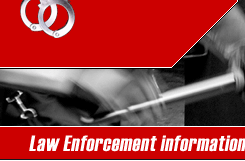The bankruptcy trustee is the designated representative of the bankruptcy estate who exercises statutory powers, principally for the benefit of the unsecured creditors, under the general supervision of the court and the direct supervision of the U.S. trustee or bankruptcy administrator. The trustee is a private individual or corporation appointed in all chapter 7, chapter 12, and chapter 13 cases and some chapter 11 cases. The trustee's responsibilities include reviewing the debtor's petition and schedules and bringing actions against creditors or the debtor to recover property of the bankruptcy estate. In chapter 7, the trustee liquidates any non-exempt property of the estate, and makes distributions to creditors.
The chapter 7 trustee will examine the debtor's pay advices and tax returns which are required to be submitted under the current law. The trustee will ask the debtor questions, under oath, to determine whether or not there are assets available for distribution. Trustees in chapter 12 and 13 have similar duties to a chapter 7 trustee and the additional responsibilities of overseeing the debtor's plan, receiving payments from debtors, and disbursing plan payments to creditors. In the counties surrounding Chicago, Glenn Stearns is the standing Chapter 13 trustee. Mr. Stearns is a hands-on trustee who takes an active role in the bankruptcy process.
He often conducts 341 meetings of creditors whereby he examines the debtor as it relates to the information contained in the schedules. He also appears before the Judge to offer his opinion with regard to confirmation issues. Mr.
Stearns further appears at Trustee's motions such as the Trustee's motion to dismiss. Additionally, Mr. Stearns has made the two-hour, post-filing, debtor education class available through his office. As long as the debtor's case has been assigned to Glenn Stearns as Trustee, the debtor can attend the class free of charge. The class is often scheduled on the same date and location as the debtor's 341 creditors' meeting.
This is very convenient for the debtor in that there is no excuse not to take the class. Since the two-hour education is required prior to receiving a discharge, it makes sense to take the class early and get it out of the way. Much of the debtor's case information is made available on the trustee's website. This feature is extremely helpful in determining which creditors have filed claims and to what extent those claims are being paid.
Lastly, the trustee can be reach via telephone for any additional questions from either the debtor or his counsel.
David M. Siegel is the author of Chapter 7 Success: The Complete Guide to Surviving Personal Bankruptcy. He is a member of the American Bankruptcy Institute and currently practices bankruptcy law in Chicago and its surrounding suburbs. Additional information is available at Chapter 7 Bankruptcy.


